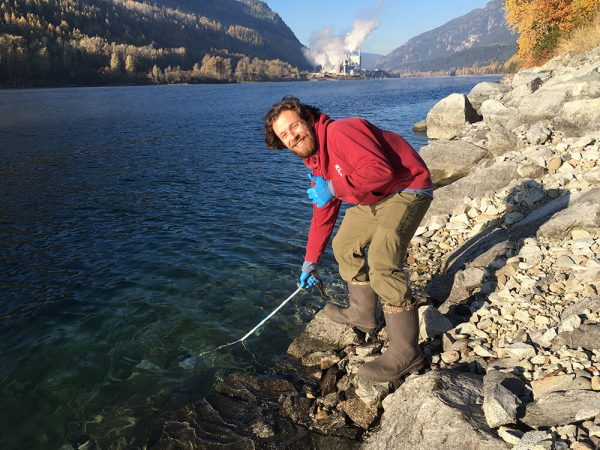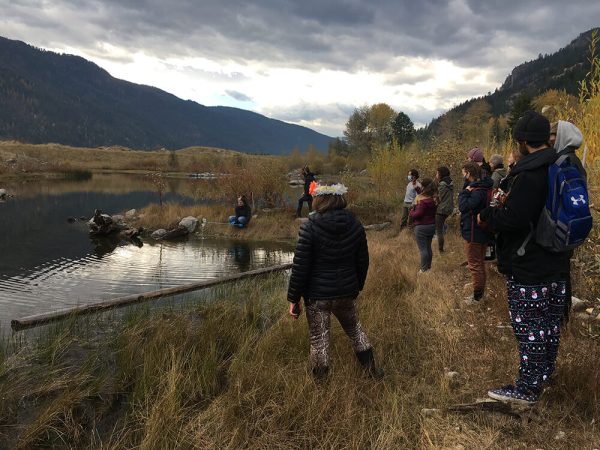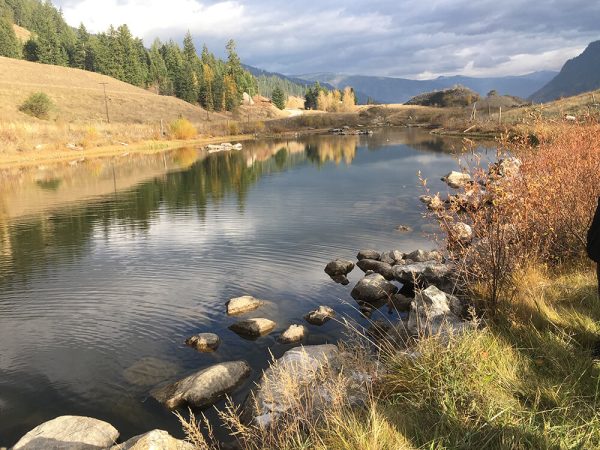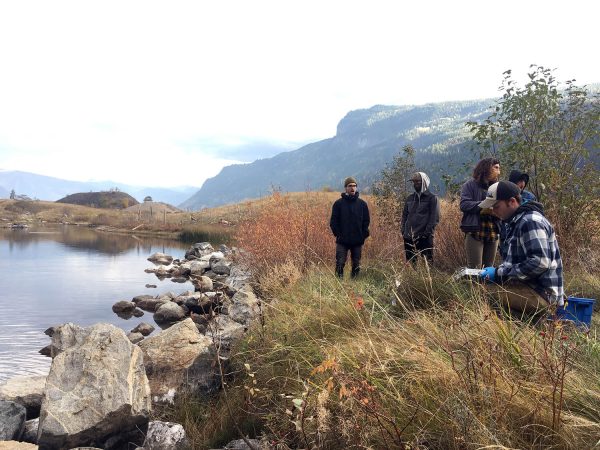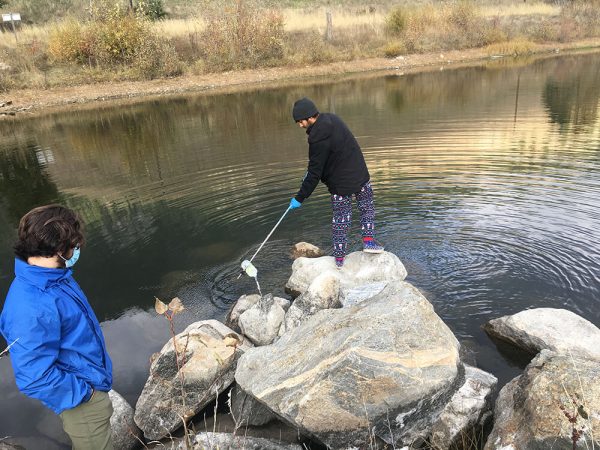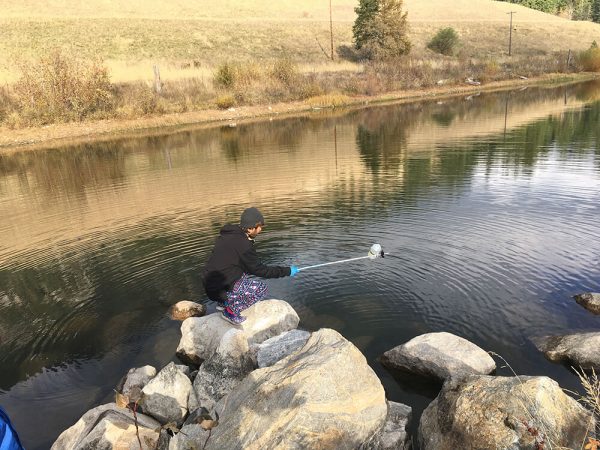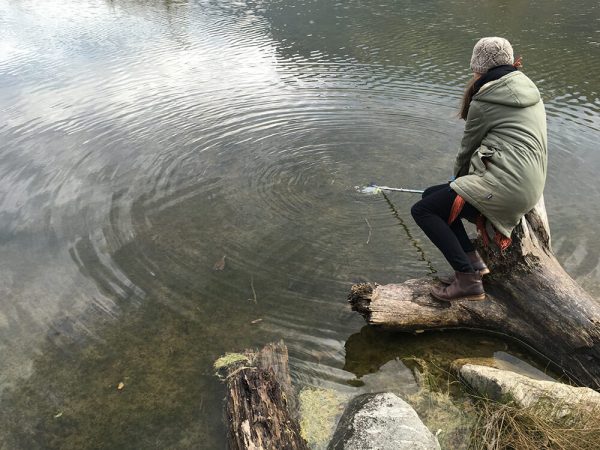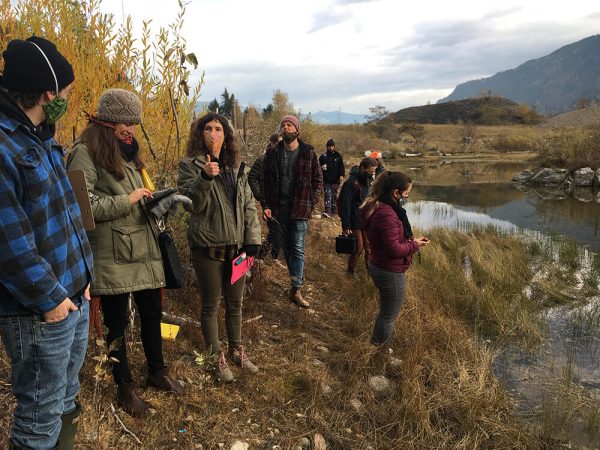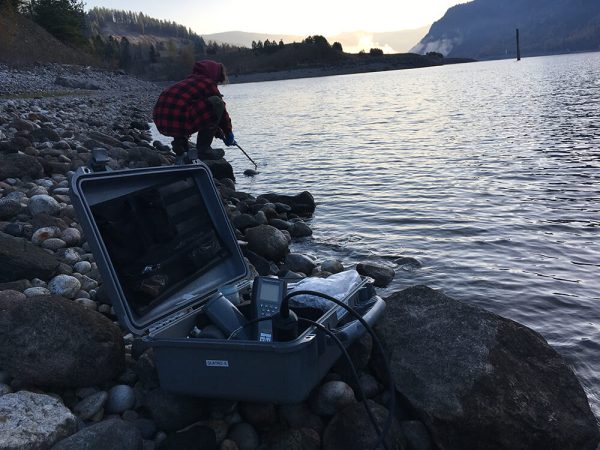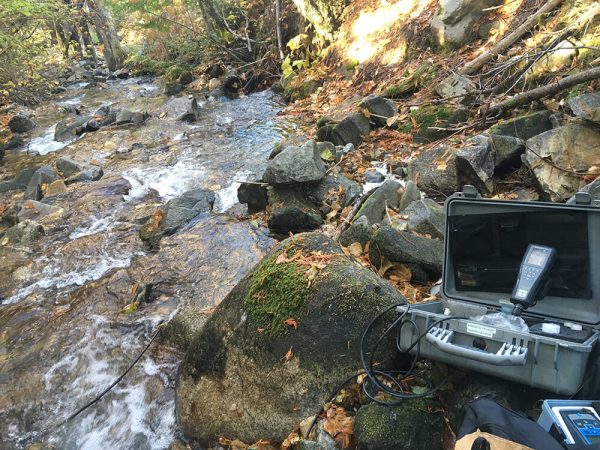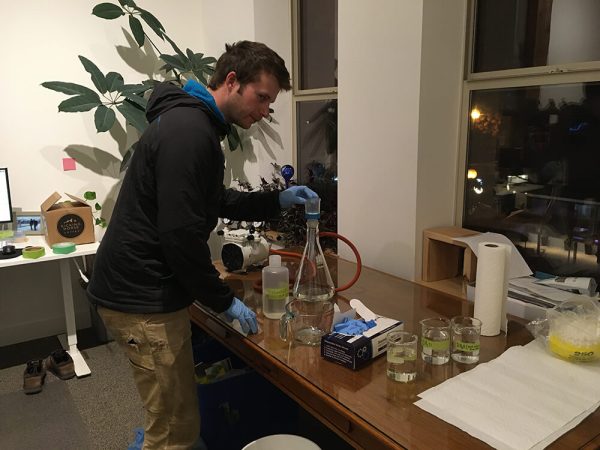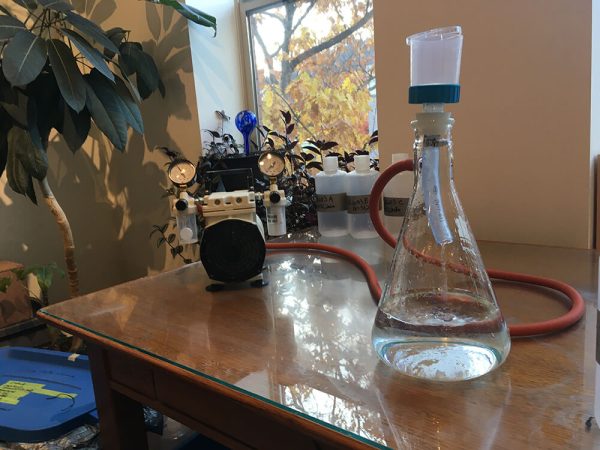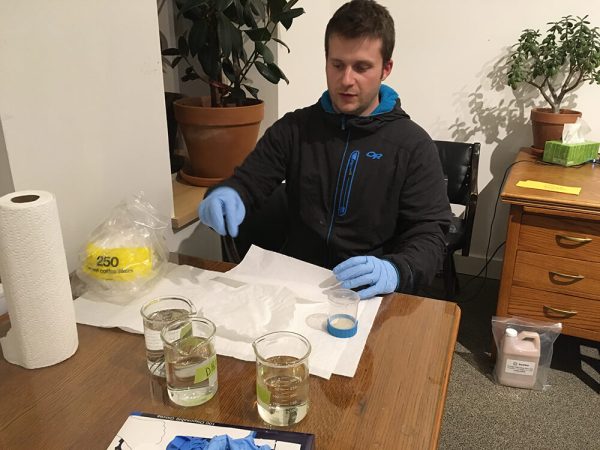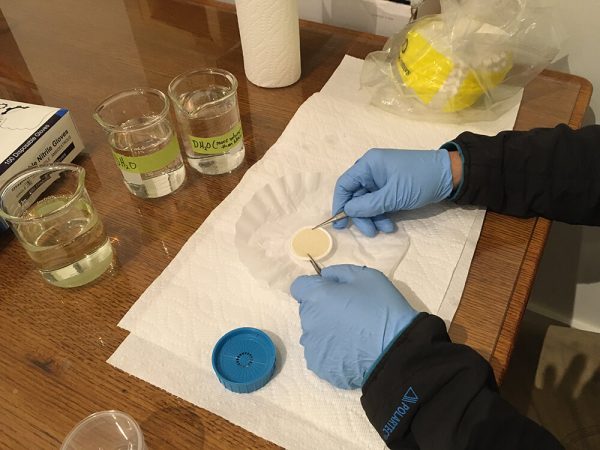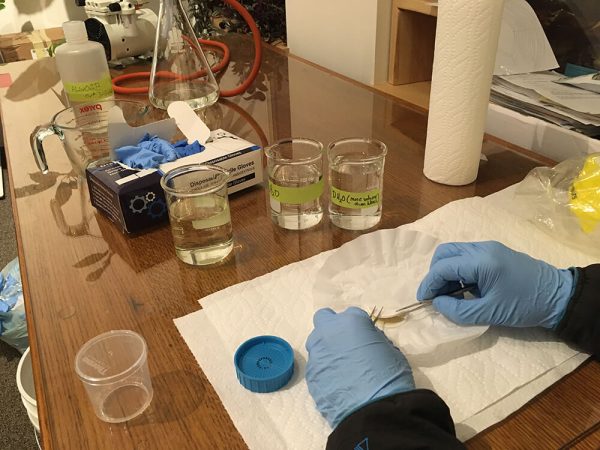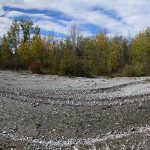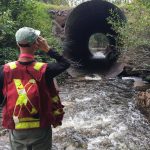Students learn about leading edge eDNA research in hands-on demonstration
By Kyle Prince, LLC Program Coordinator
On October 30, Living Lakes Canada (LLC) staff Kyle Prince and Santiago Botero provided an Targeted Environmental DNA (eDNA) demonstration to Selkirk College Integrated Environmental Planning (IEP) students, and then teamed up with the students to collect targeted eDNA samples.
This was completed as part of the Flow H20 project, which is a pilot of the Fresh Water Data Commons (FWDC). FWDC is a collaboration between Carl Data Solutions and its subsidiaries, i4C Innovation and Astra Smart Systems, Teck Resources, Genome BC, Microsoft, University of Victoria, and LLC with support of Canada’s Digital Technology Supercluster
One of the Flow H20 components includes Targeted eDNA research, which is led by the University of Victoria (U of Vic) Dr. Caren Helbing Lab and assisted by LLC. U of Vic provided background information, virtual training, directed project design, and analyzes the samples and reports on results. LLC finds local partnerships in the study area, collects field samples, filters/preserves them, and sends them to the U of Vic Lab for analysis. This latest round of sampling was the second of the year; the first round was collected in July.
The search for partnerships and local projects to help gather meaningful information was how LLC first interacted with Selkirk College and planned on sampling in the college’s restoration wetland project. IEP students have a long history of collaboration with Columbia Power on this site. They have worked since 2016 on enhancing the biodiversity and structure of vegetation immediately adjacent to the wetland.
“Columbia Power has been very supportive of experimentation during the project ” said Doris Hausleitner, instructor of the IEP restoration field school. “The collection of eDNA provides an additional tool to monitor the effectiveness of restoration and manage for invasive species”
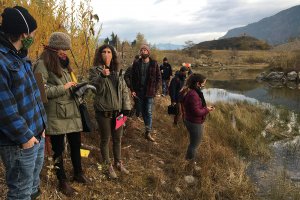 LLC staff met the Selkirk College IEP class on site to explain Targeted eDNA, field and filtration protocol, explaining how all animals slough off DNA through skin, mucus, feces, etc. into their immediate environment, and that these eDNA fragments can be captured by properly filtering a water sample, which is then analyzed in a lab. The importance of decontaminating equipment between sites to eliminate eDNA transfer and keep results accurate was also emphasized. LLC demonstrated the field collection protocol, and then students were given a chance to try it out for themselves.
LLC staff met the Selkirk College IEP class on site to explain Targeted eDNA, field and filtration protocol, explaining how all animals slough off DNA through skin, mucus, feces, etc. into their immediate environment, and that these eDNA fragments can be captured by properly filtering a water sample, which is then analyzed in a lab. The importance of decontaminating equipment between sites to eliminate eDNA transfer and keep results accurate was also emphasized. LLC demonstrated the field collection protocol, and then students were given a chance to try it out for themselves.
Students volunteered to collect the remaining required samples and provided additional water chemistry data, all of which will be used in the final report. It was a great way for students to gain some knowledge and experience on an emerging environmental survey technology that they will almost certainly encounter in their careers.
“With COVID-19 safety protocols in place, Kyle and Santiago did a wonderful demonstration on site,” said Allison Lutz, Geography/Hydrology Instructor at Selkirk College. “They took students through the entire process from sanitation of gear to eDNA sampling, setting up of equipment and filtration. This type of leading edge, hands-on experience is an extremely valuable learning opportunity. Students were engaged and had lots of questions about the future potential of eDNA analysis.”
The following day, LLC staff returned to the area to collect the remaining samples along with completing the filtration/preservation process. Once the samples are analyzed results can be compared to the July collection session, and to any existing historic data from conventional surveys. This knowledge will help inform the local restoration/conservation areas, and develop a greater understanding of eDNA applications, detection rates, applicability.


